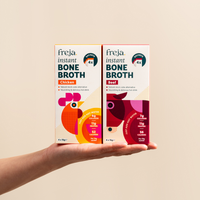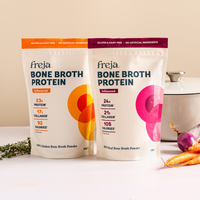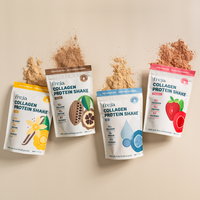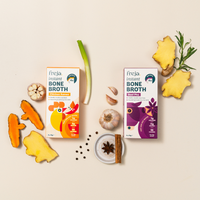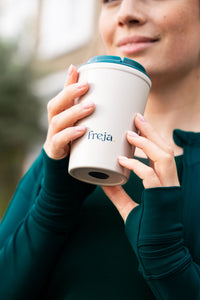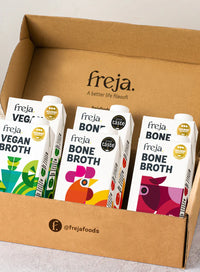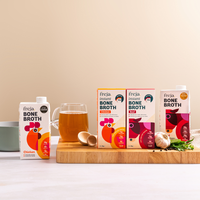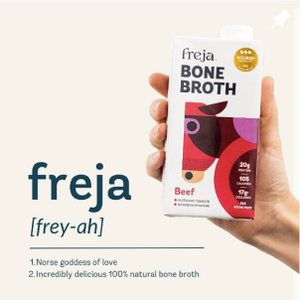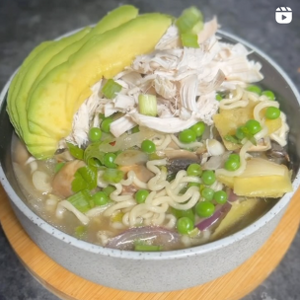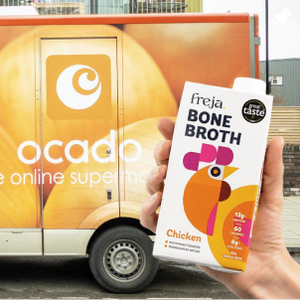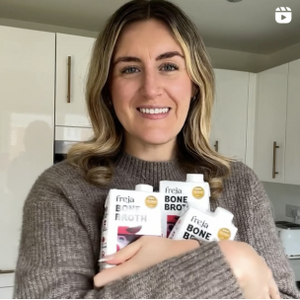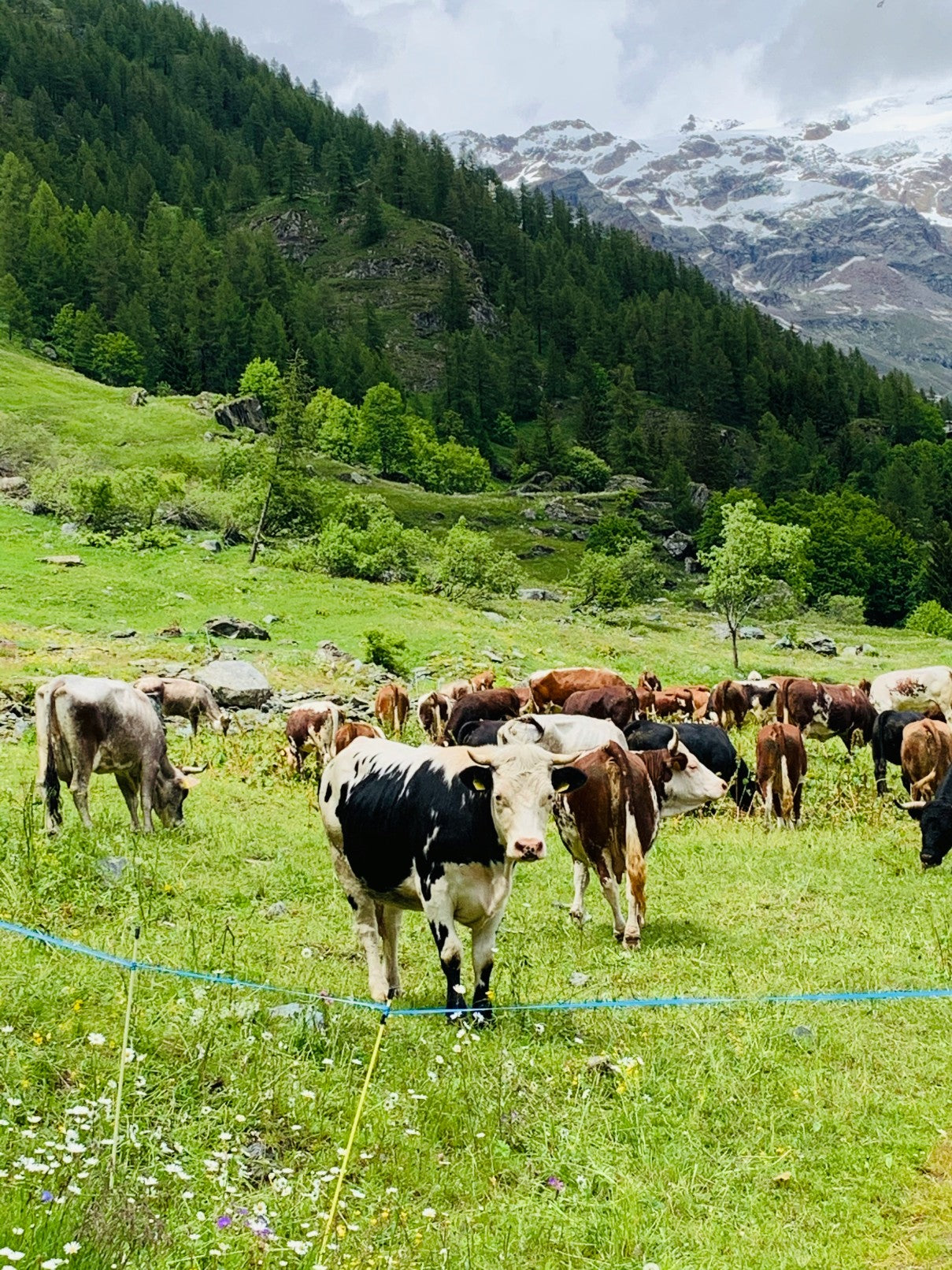
Age-old tradition
We started our journey in Norway, where animal welfare standards are some of the best in the world. High-welfare sourcing is non-negotiable for us: our grass-fed beef and free-range chicken are sourced from small, cooperative, high-welfare Norwegian farms. Our bone broth powders are sourced from both Norwegian and Swedish farms with strict standards.
It’s cold in Scandinavia, so animals are kept in well-insulated barns for longer periods during the colder months. When housed in indoor barns, chickens are granted more space to roam per square metre than anywhere in the EU.
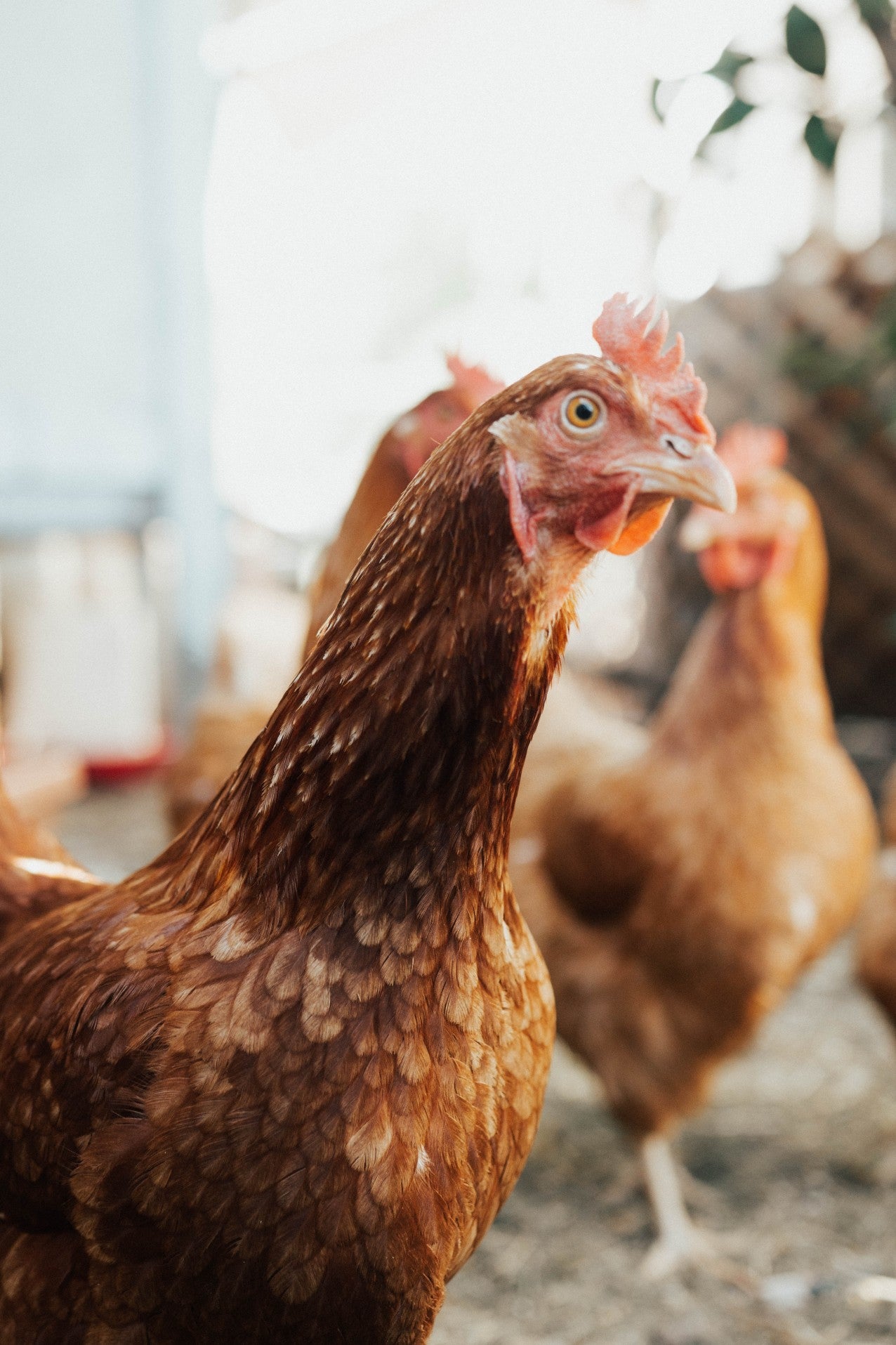
Healthier animals
Norwegian farmers believe in prevention rather than cure. When it comes to medicating farmed animals, Norway has some of the strictest regulations in the world, with the lowest use of antibiotics than any other country. Cows and chickens are never given unnecessary antibiotics to prevent diseases, and it’s forbidden to use hormonal growth-promoting drugs.
All of our bone broths and bone broth powders are tested for hormones, veterinary medication and pesticides, so you can be sure you're getting food that’s as good as organic.
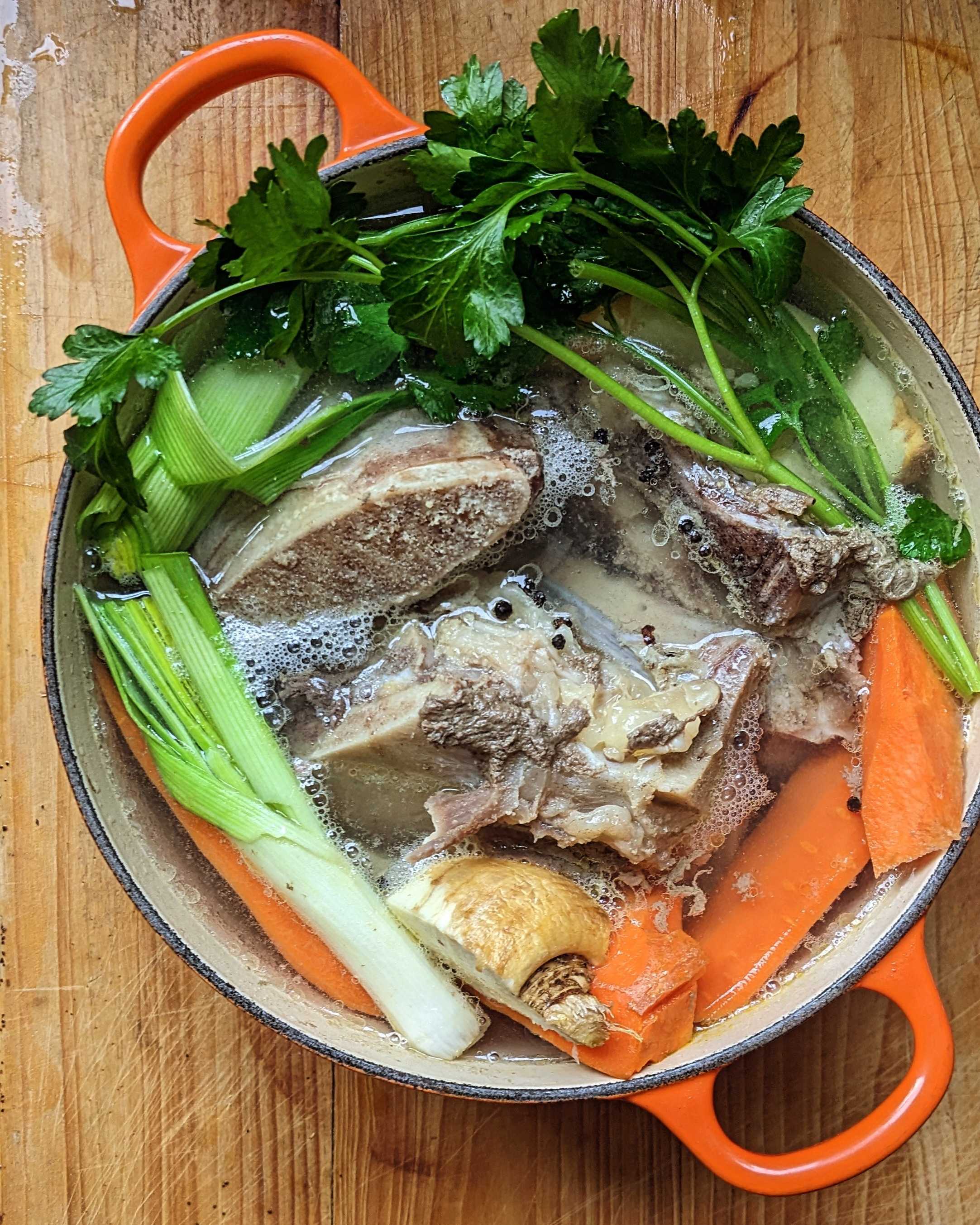
Nose-to-tail nutrition
Animal bones and misshapen vegetables are often unwanted byproducts of our food industry, ending up as animal feed or, worse, in landfill.
To make our broths, we upcycle bones from grass-fed cows, free-range chickens and sustainable fish, and wonky veg that would otherwise get thrown away. We turn these precious unwanted ingredients into nutrient-dense, delicious broths. If that’s not a good use of all that flavour and nutrition, we don’t know what is!
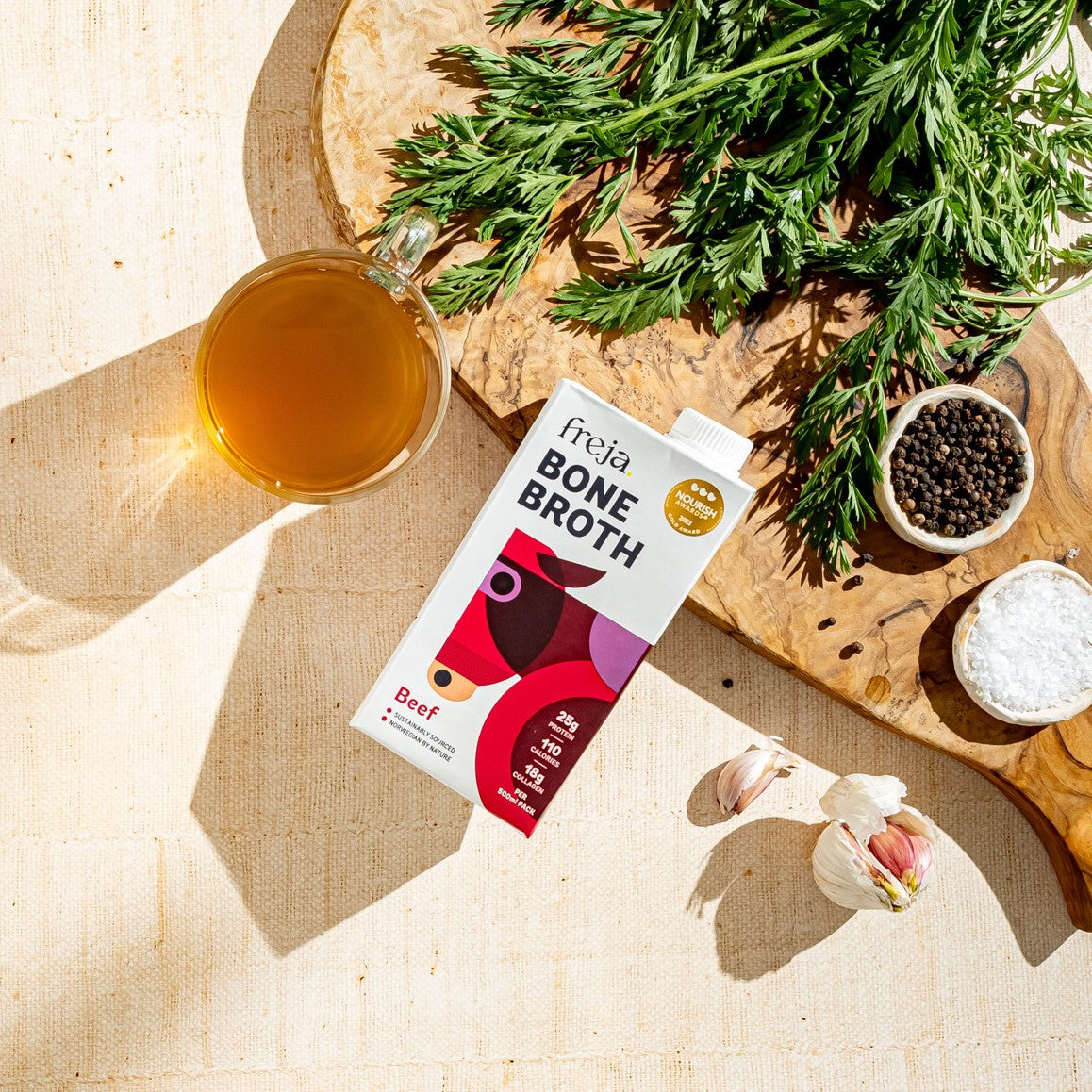
Upcycle & recycle
Our no-waste philosophy extends to how we package our bone broth. Our cartons are 100% recyclable and come from 90% renewable sources; they’re made from renewable FSC-certified paperboard, from responsibly managed forests, certified against the ASI performance standard. Recycle them the same way you recycle Tetra Paks – no need to separate the lids.

